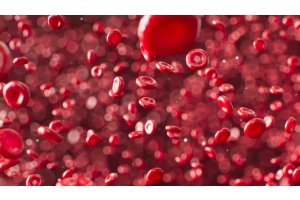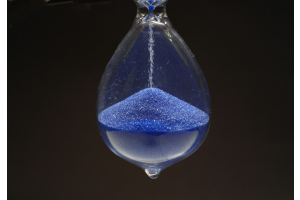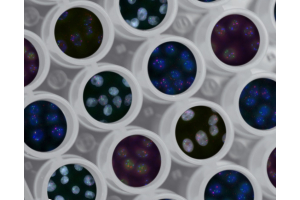Supporting the Named Patient: How we do it
Last updated: 19 November 2020
You can legally access new medicines, even if they are not approved in your country.
Learn more »This article is the first of two that will explore different parts of the Named Patient Import for unavailable medicines given from our perspective and those of healthcare professionals. In this article we will focus on what the Named Patient import is and how patients can use it to access approved medicines that are not approved or not available in their home country.
One of the most common questions asked by the patients, family members, caregivers, and doctors we support at everyone.org is “How are you able to provide access to approved medicines that aren’t approved in my home country?” Put simply, we use the Named Patient Import basis, which gives patients the ability to access approved medicines that are not yet approved or available in their home country.
What is the Named Patient basis?
In most countries, any patient (the Named Patient) with a life-threatening, long-lasting or seriously debilitating illness has the right to access, purchase, and import medicines that are potentially life-saving or able to improve quality of life. Every country has their own specific rules and regulations surrounding the access and import of innovative medications, and there are many different programmes and regulations set up for this purpose. These include the Named Patient Import, Compassionate Use Programme, and Early Access Programme, to name a few. (To learn more about the other types of programs for accessing medicines, please see the resources listed the end of this article.)
everyone.org provides access to medicines specifically on the Named Patient Import basis, which means that we work on behalf of the patient in cooperation with their treating doctor. In general, every country has the same rule that only approved medicine shall be marketed. However, every country also has legal exceptions stipulated in the national law, such as a Named Patient Import for personal use in cases where the medicine is unavailable in the patient's country. These exceptions are made to ensure that everyone, in theory, shall benefit from all medicine innovations globally. In order for us to support individual patients in accessing approved medicines using the Named Patient basis, these requirements must be met:
- The medicine has market approval in another country and is not approved or available in their own country.
- There is no alternative on the market.
- The medicine is for personal use.
- The patient has a prescription-letter from their doctor in their home country.
- The medicine must be dispensed from a pharmacy.
Depending on the national legislation of the specific country additional requirements may apply, such as approval by the Ministry of Health, a limit on the import amount, etc. everyone.org makes sure all relevant requirements are known and met.
Order inquiry and further communication
After we are first contacted, our support team works with the patient to ensure that they have first consulted with their treating doctor to plan the best course of treatment and have a prescription for the medicine they need. From that point on, our role is to oversee the entire process. We manage every aspect so the patient doesn't have to. This ranges from sourcing to shipping, to customs and delivery, as well as following up to make sure that everything was received in good order. With assistance from our team of pharmacists, physicians and lawyers, we support the patient and their doctor every step of the way. Throughout this process we aid patients by proactively providing them with information on what to expect from beginning to end. Patients also get timely updates on shipping, responses to their questions and more information on anything else that may arise. Our goal is to offer customised support to each patient and treating doctor so they don’t have to worry about how they will receive the medicine they need.
From supplier to pharmacy
What happens after a patient provides us with a prescription? First we verify that we can legally provide them with the medication they need. If so, we work with the pharmacy to make sure that all the prescription and patient data is correct. We then pass along the information to our sourcing manager who contacts our preferred trusted suppliers to see which can fill the order the quickest, safest and at the lowest cost. Transportation is also a key part of the process as some medications require specific shipping conditions like temperature regulation, called cold chain transport. It is commonly used by pharmaceutical suppliers and is generally more expensive and time-sensitive than regular shipping. Using the appropriate transport method, we arrange for the medication to be delivered to a partner pharmacy.
From pharmacy to you
The pharmacy prepares the medications for local or international shipping. At this point our logistics manager organises transport from the pharmacy to the patient's door or a designated pick-up point, usually a local pharmacy in patient's hometown. Since this leg of the journey is entirely dependent on us for the shipping, our logistics manager must draw from his broad network and years of expertise to expedite the medications as safely, securely and hassle-free as possible. This involves coordinating all the necessary medical proof and import paperwork with a focus on accuracy and timeliness. Customs agencies and even the transport companies also have different procedures that must be taken into account and the required paperwork varies from country to country. However, our support team is always there to guide, help and inform patients and their healthcare providers in submitting these documents.
We're proud to boast a 100% success rate on our deliveries to doctors and patients in over 70 countries! Thanks to the hard work of everyone at everyone.org, thousands of people have benefited from the medicines they receive. Even more people (such as other patients or a patient's family, friends and doctors who also contact us) have been helped to find the information they need or to connect with other healthcare professionals specialising in their disease. At the end of the day, it's important to remember that we are striving for a world where everybody, no matter who they are or where they live, has equal, fast and fair access to the latest and best healthcare.
References
- Questions and answers on the compassionate use of medicines in the European Union [PDF], European Medical Agency, January 2010.
- Iudicello A., Alberghini L., Benini G. and Mosconi, P. Expanded Access Programme: looking for a common definition. Trials, 2016;17:21, 2016/01/12
- Glossary of Pre-Approval Access Terminology [PDF]. Pre-approval Access Patient Advocacy Summit, Janssen, October 2018.






